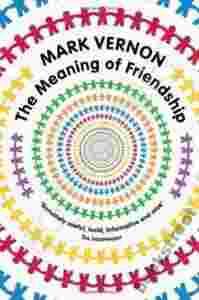|
A tremendous burden is being placed on friends.
Individuals want friends more than family. Couples want
to marry a friend - a very novel idea. And at the social
level, politicians, sociologists, even bishops realise
that in the anonymity of the networked age, friendship
is increasingly important to care, commitment and
belonging. Friendship, we believe or hope, is elastic
enough to connect us across the web of complex lives,
and strong enough not to snap. But is it? For whilst
many are turning to friendship, few are asking what they
are turning to. In this new, accessible philosophy of
friendship, Mark Vernon examines the love called
friendship upon which so much happiness depends. He
links the resources of the philosophical tradition with
numerous illustrations from modern culture to ask about
friendship and sex, work, politics and spirituality.
Unusually, he argues that Plato and Nietzsche, as much
as Aristotle and Aelred, should be put centre stage.
Their penetrating and occasionally tough insights are
invaluable if friendship is to be a full, not merely
sentimental, way of life for today.In this new version
of his book previously published as The Philosophy of
Friendship, Mark Vernon also tackles friendship and the
internet exploring the rise of social networking sites
and asking how notions of friendship may or may not be
changing, for good or ill, because of the internet. He
also adds a chapter on the psychology of friendship,
looking at notions of friendship that arise from
evolutionary psychology. |
|

